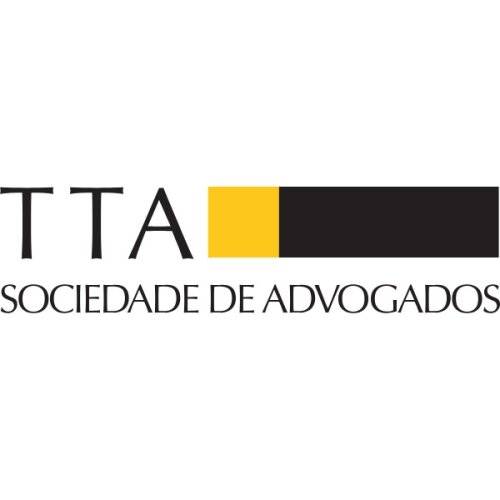Best Art & Cultural Property Law Lawyers in Maputo
Share your needs with us, get contacted by law firms.
Free. Takes 2 min.
List of the best lawyers in Maputo, Mozambique
About Art & Cultural Property Law in Maputo, Mozambique
Art & Cultural Property Law in Maputo, Mozambique, encompasses legal protections, ownership rights, and guidelines for the preservation, acquisition, and distribution of cultural artifacts, artworks, and heritage properties. Given Mozambique's rich historical tapestry and diverse cultural heritage, these laws aim to safeguard both tangible and intangible cultural assets from theft, illegal trade, and misappropriation. The legal framework is designed to protect cultural heritage while promoting cultural expression in alignment with international standards. In Maputo, balancing economic development with cultural preservation remains pivotal, influencing the drafting and implementation of these laws.
Why You May Need a Lawyer
There are various situations in which individuals or entities might require legal assistance in Art & Cultural Property Law in Maputo:
- Cultural Artifact Disputes: Ownership or provenance issues regarding cultural artifacts.
- Intellectual Property Rights: Protecting the rights of artists and cultural creators.
- Acquisition and Sale: Legal guidance for buying or selling art and cultural property.
- Restitution Claims: Seeking the return of cultural properties to their rightful owners or originating communities.
- Export and Import Regulations: Navigating the legality of moving cultural items across borders.
- Heritage Preservation Laws: Ensuring compliance with laws concerning the preservation of historical sites.
Local Laws Overview
The local legal landscape in Maputo regarding Art & Cultural Property Law focuses on several key areas:
- The National Cultural Heritage Act: This provides a comprehensive framework for protecting and managing Mozambique's cultural heritage.
- Decree on the Protection of Cultural Fields: This regulates the excavation, trade, and ownership of archeological assets.
- Customs Laws: These laws detail restrictions and guidelines on the import and export of cultural goods, particularly those considered national treasures.
- Copyright Law: Ensures protection for creators of art and culture, upholding their rights over creative works.
Frequently Asked Questions
What is considered cultural property?
Cultural property includes artifacts, works of art, archeological sites, historical monuments, and any material reminiscences of past cultural expressions that are legally recognized as significant to Mozambique's cultural heritage.
How do I verify the provenance of an art piece?
Consult with experts, request documentation from the seller, and involve legal professionals specializing in art provenance to ensure authenticity and legal ownership.
What should I do if I discover cultural artifacts on my property?
Notify the local cultural heritage authorities immediately to comply with legal requirements related to archeological finds and avoid potential breaches of cultural property laws.
Can I legally export Mozambican art or artifacts?
Exporting cultural goods requires permissions through relevant Mozambican authorities, ensuring compliance with both local and international regulations governing the movement of cultural properties.
What are the penalties for illegal trade in cultural property?
Penalties may include fines, imprisonment, and the confiscation of assets. Legal repercussions are stringent to deter the unauthorized exchange of cultural heritage items.
How do copyright laws protect artists in Mozambique?
Copyright laws grant artists exclusive rights to their creative works, prohibiting unauthorized reproduction, distribution, and display, thereby securing their intellectual property.
What legal steps can be taken for restitution of stolen cultural items?
In cases of stolen cultural property, legal avenues include contacting law enforcement, working with international bodies, and initiating restitution claims through the court system.
Who enforces cultural property laws in Mozambique?
Enforcement is primarily the responsibility of government departments dedicated to culture and heritage, supported by law enforcement agencies to ensure compliance.
Are there any international treaties that affect Mozambican cultural property law?
Yes, Mozambique is a signatory to various international agreements, including the 1970 UNESCO Convention, which helps combat the illegal trade of cultural property.
What are my rights if I am an artist in Mozambique?
Artists have rights under copyright law, allowing them to control the use, reproduction, and distribution of their creations while securing attribution and financial benefits from their work.
Additional Resources
For more information and assistance related to Art & Cultural Property Law in Maputo, consider reaching out to these entities:
- Ministry of Culture and Tourism: The primary governmental body overseeing cultural heritage legislation and compliance.
- Mozambican National Institute of Cultural Heritage: An organization for the protection and promotion of national cultural heritage.
- BAR Association of Mozambique: Provides a directory of legal professionals specializing in cultural property law.
- UNESCO Mozambique Office: May offer insights and resources on international treaties influencing local laws.
Next Steps
If you require legal assistance regarding Art & Cultural Property Law in Maputo, follow these steps:
- Identify the specific issue or question you have within this legal area.
- Compile all relevant documentation and details related to your situation.
- Contact a legal professional specializing in Art & Cultural Property Law for a consultation.
- Consult with government departments or cultural authorities if your issue pertains to compliance with local regulations.
- Consider contacting local art bodies or institutions to explore additional non-legal support structures that may be available.
Lawzana helps you find the best lawyers and law firms in Maputo through a curated and pre-screened list of qualified legal professionals. Our platform offers rankings and detailed profiles of attorneys and law firms, allowing you to compare based on practice areas, including Art & Cultural Property Law, experience, and client feedback.
Each profile includes a description of the firm's areas of practice, client reviews, team members and partners, year of establishment, spoken languages, office locations, contact information, social media presence, and any published articles or resources. Most firms on our platform speak English and are experienced in both local and international legal matters.
Get a quote from top-rated law firms in Maputo, Mozambique — quickly, securely, and without unnecessary hassle.
Disclaimer:
The information provided on this page is for general informational purposes only and does not constitute legal advice. While we strive to ensure the accuracy and relevance of the content, legal information may change over time, and interpretations of the law can vary. You should always consult with a qualified legal professional for advice specific to your situation.
We disclaim all liability for actions taken or not taken based on the content of this page. If you believe any information is incorrect or outdated, please contact us, and we will review and update it where appropriate.











